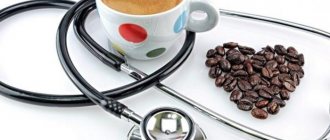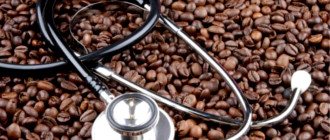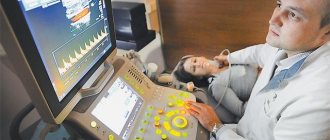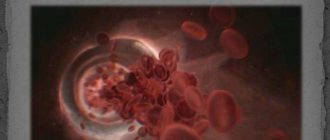Coffee is probably one of the few products that both doctors and true admirers of the drink constantly argue about.
Centuries-old traditions of drinking it have shown that we still know very little about it. So, for some it increases blood pressure, while others complain about its decrease. How is this possible? And is it possible to have coffee with high blood pressure?
Let's try to understand its secret properties. Let's start with the fact that we all eat different types and varieties of coffee. And if we add to this that the drink may initially have a different composition, then it is quite logical that all these details have a certain effect on our body. Therefore, let us clarify that further we will talk about natural grain types.
Caffeine
Today, coffee and tea are the most consumed drinks on earth. They contain caffeine, making this chemical the world's most common stimulant. It has become an integral part of the life of 90% of people on Earth! This alone causes doctors to pay close attention to caffeine and drinks containing it. Different types of coffee and tea contain different amounts of caffeine - typically ranging from 50 to 250 mg per cup. In addition, both tea and coffee contain many other biologically active substances (more than a thousand!), which can sometimes make it difficult to assess the effect of caffeine in a particular drink.
If almost everyone perceives tea as a healthy drink, then with coffee everything is more complicated. Even many of those who drink it with pleasure do so with the idea that they are succumbing to a bad habit. By analogy with tobacco and alcohol. Although the caffeine content in some types of coffee is much lower than in tea! Coffee is accused of many things: it increases blood pressure, causes arrhythmia, leads to a heart attack, provokes miscarriages - you name it! And, as a rule, these ideas are far from the truth.
Indeed, caffeine has a multifactorial effect on our body, affecting all its life support systems. And as always, the benefit or harm of such exposure is determined by the dose. Consuming up to 400 mg of caffeine per day is considered safe. This is the amount of caffeine found in 3-4 cups of coffee or 4-6 cups of tea.
Does coffee increase blood pressure?
The main component of coffee is caffeine, which has a stimulating effect. Whether coffee increases blood pressure depends on certain conditions:
- The drink stimulates the central nervous system, so it is often recommended to drink it when overtired and lack of sleep, as well as to improve brain activity. A high concentration of the substance in the blood causes vascular spasms, which increases blood pressure.
- Caffeine can block adenosine synthesis, which stimulates brain activity but increases blood pressure. It increases the production of adrenaline by the adrenal glands, which is accompanied by an increase in blood pressure.
- As the number of cups you drink increases, the risk of negative consequences increases. As a result, daily consumption of the drink in large quantities leads to the development of hypertension in completely healthy people.
Coffee to increase blood pressure is a potent drink, when consumed, various changes occur in the body:
- after entering the body, caffeine affects the brain and central nervous system, transferring them into the excitation phase from the calm phase;
- acting on the adrenal glands, the production of stress hormones increases;
- the heartbeat quickens and the body falls into real panic;
- blood flow increases, the result of all these complex processes is an increase in pressure.
From headaches to cancer
Let's look at the useful and not so healthy aspects of consuming caffeine-containing drinks separately. Let's start with coffee.
Nervous system . We all know that coffee both wakes you up and relieves fatigue. Legend has it that Ethiopian shepherds in ancient times paid attention to coffee beans because their goats, chewing the branches of coffee trees, then jumped and bleated all night!
Numerous studies have shown that people who regularly consume coffee perform better on intelligence tests. For those whose work involves flying or night shifts, coffee helps them adapt more easily than those who do not drink coffee. Actually, this is clear even without any research, otherwise people would drink it so widely?!
Headache . Caffeine has long been used to treat headaches; It is still included in many similar drugs today. But there is also the other side of the coin: those who suffer from chronic headaches know that when you constantly swallow a lot of pills and then stop, the pain increases dramatically. This is the withdrawal syndrome. It’s the same with coffee: refusing it can trigger a migraine attack.
Parkinson's disease is less common among coffee drinkers. Why this is so is not yet clear. There is one fly in the ointment: in menopausal women taking hormone replacement therapy, consuming six or more cups of coffee per day, on the contrary, increased the risk of parkinsonism.
Diabetes . Caffeine has been shown to reduce tissue resistance to insulin and may protect against the development of diabetes. And decaffeinated coffee too. In addition to caffeine, coffee also contains various other substances that have their own mechanisms of action on the body. Flavonoids, polyphenols, lignans - then there are the completely unpronounceable ones.
Heart and blood vessels . How much has it been hammered into our heads that coffee is bad for them! “What are you saying, I don’t drink coffee, I have hypertension!” Many doctors with stupid persistence continue to support this “medieval” idea. It would be better to read books. I’ll try to convey to you again: coffee is safe for hypertension in reasonable quantities! It is only if someone drank coffee for the first time in their life that their blood pressure may jump. But the benefits of coffee for hypertensive patients are enormous! Heart attacks are less common! Yes, yes, special studies in Scandinavia have shown this: drink three cups a day, and the risks of a heart attack are reduced; but if you drink more than six, then they increase again! Moreover, coffee prevents the development of arrhythmia. It would seem like a paradox: in large doses it increases the heart rate. Yes, it can slightly increase the rhythm, but in reasonable doses it does not cause arrhythmia - neither atrial fibrillation nor any other!
Liver . Coffee is a healing drink for the liver. The opposite of alcohol! In patients with infectious hepatitis, coffee delays the progression to cirrhosis and cancer. The recommended dose is three cups and above! The same applies to the threat of alcoholic cirrhosis.
Oncology . Coffee does not provoke its development. On the contrary, there is evidence that in some cases it can prevent it. This is explained by the presence of a large amount of antioxidants in coffee. The studies were conducted in breast, lung, ovarian, colon, uterine and prostate cancers. However, it is too early to talk about proven benefits; Many doctors consider the results of such studies to be largely inconclusive and contradictory. The best evidence is for preventing liver and prostate cancer. Not only coffee, but also green tea has a beneficial effect on the prostate. Even its dose has been removed - five cups a day.
Constipation . Many people experience the stimulating effect of coffee on intestinal motility.
Osteoporosis . Initial studies suggested that coffee weakens bones and increases the incidence of fractures. Later, these data were not confirmed, and today coffee is considered safe for women with osteoporosis (and tea is completely healthy!).
Arthritis, gout . Coffee has been proven to lower uric acid levels and protect against gout attacks.
But pregnant women should not drink a lot of coffee. Caffeine passes well through the placenta and enters the fetal blood. As a result, the fetal heart rate may increase and its mobility may increase. There is nothing particularly scary about this; coffee does not cause any birth defects. However, the expectant mother still needs to limit herself to one cup of coffee per day.
As for tea, in addition to caffeine, the effect of which I have already mentioned, this drink contains flavonoids, many other antioxidants and biologically active substances. Studies conducted in Japan and China - countries with traditionally high consumption of green tea - show a decrease in the incidence of heart attacks and strokes and lower overall mortality in the group of those who drink tea daily. Polyphenols, found in abundance in green tea, have a pronounced antitumor effect. At least in experimental animals. Human research is mixed... Experiments in China show that polyphenols may reduce the risk of prostate cancer. Others, but where the subjects were Japanese or their relatives living in Hawaii, have not yet confirmed such data. There are suggestions that drinking large quantities of green tea may slow down the aggressive course of ovarian cancer... In any case, almost half of all cancer patients drink large quantities of green tea in the hope of overcoming the disease.
There is virtually no doubt about the effectiveness of green tea in lowering “bad” cholesterol and preventing osteoporosis.
Impact on hypertensive patients
In people with persistently elevated blood pressure relative to normal, the effect of a strong drink will be more pronounced and stronger; it can quickly and sharply rise to critical and life-threatening values. Does this mean that it will have to be abandoned completely and forever? No, but you should definitely consult with your doctor about the permissible frequency and portions of drinking coffee so that the harm to blood vessels and the heart is minimal.
Recommendations:
- The less coffee there is, the less it will affect your blood pressure. In other words, you should reduce portions and/or add as much milk or cream to the cup as possible. The latter, by the way, is especially useful, especially for older people with their already fragile bones due to age, because with regular consumption of this drink, quite a lot of calcium is washed out of the body, and dairy products will help compensate for its deficiency.
- Preference should be given to ground coffee beans rather than instant coffee. It is advisable to choose varieties with coarse grinding. Taken together, this will significantly reduce the effect of the drink on blood pressure.
- To prepare the drink, it is advisable to use a Turk or espresso machine, rather than a drip coffee maker.
- It is advisable to drink a cup of your favorite drink not immediately after waking up, but about an hour or later.
- Choose varieties with the least amount of caffeine, for example, Arabica, where it is slightly more than 1%. For comparison, in other popular varieties, Liberica and Robusta, there is already 1.5-2 times more of this substance.
- It is also worth taking a closer look at the so-called decaffeinated drink, i.e., one that does not contain caffeine. It is removed forcibly using steam treatment and various solutions with chemicals that are safe for health. As a result, at least up to 70% of caffeine is removed, or up to 99.9% if the coffee is produced according to EU standards. Decaffeinated varieties of the Cameroon and Arabica varieties were discovered in nature in the early 2000s, and their appearance is associated with a random mutation in the plants.
Of course, all these recommendations are suitable not only for those who already have problems with high blood pressure, but also for all people who want to play it safe and minimize the effect of caffeine on their cardiovascular system.
Fallback option
In addition to tea and coffee, caffeine is found in dark chocolate and many energy drinks. Chocolate is welcome: it contains a lot of antioxidants (the amount of flavonoids is not inferior to red wine!) and many other useful things. Just let’s agree on what exactly should be understood by the name “chocolate”. If there are various bars of “milk” chocolate or countless bars that are so aggressively introduced into the minds of teenagers by advertising (sometimes cleverly delivered!), then this is not chocolate! This is a harmful product with a lot of added sugars, trans fats, fillers, enhancers, preservatives, etc.! Chocolate must be dark (“black”!), with a cocoa content of at least 70% (indicated on the label!). A square of such a “correct” bar or a small cup of hot chocolate a day will bring not only pleasure to the body, but also real benefits!
Impact on other body systems
The main effect of this drink, as already mentioned, is aimed at the nervous system. The short-term result of this is an increase in concentration, memory and productivity. In the long term, caffeine can become addictive, causing a person to feel sluggish and unfocused without it.
Along with this negative phenomenon, there are also positive effects from drinking the drink - it increases the effectiveness of a number of painkillers (in particular, paracetamol), and with long-term use, it reduces the risk of Parkinson's and Alzheimer's diseases.
In the digestive system, coffee reduces the frequency and severity of constipation and also reduces the likelihood of liver cirrhosis. However, due to the diuretic effect, there is a need to increase the amount of fluid consumed.
The long-standing debate about the connection between coffee and oncology has come to an end - since the summer of 2021, it has been unequivocally recognized as not being a carcinogen. Moreover, regular consumption of moderate amounts of this drink can reduce the risk of certain specific types of cancer - prostate and breast cancer.










